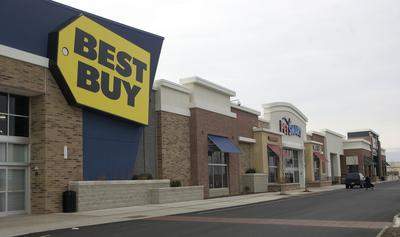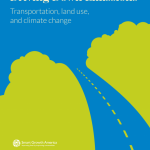New Jersey Future Blog
Redevelopment: A Blueprint for Sustainability
March 6th, 2008 by Peter Kasabach
- New Jersey is the most developed state in the nation—and not by a little bit. According to the Natural Resources Conservation Service, the Garden State leads its nearest competitor in this category, Rhode Island, by about 25 percent.
- Through the 1990s and into the early 2000s, New Jersey successfully preserved about 50,000 acres per year. This is about three times the rate of development during the same time period. A recent report completed for the Council on Affordable Housing estimates that approximately half the state is now either preserved or environmentally constrained.
- The rate of land development in New Jersey still exceeds the state’s population growth. The number of developed acres increased 30 percent faster than population between 1995 and 2002.
- An analysis of Department of Environmental Protection data shows that 40 percent of this development has taken place on virgin land in suburban and rural counties, where towns continue to adhere to large-lot, low-density zoning supported by septic systems.
- New Jersey is the most developed state in the nation—and not by a little bit. According to the Natural Resources Conservation Service, the Garden State leads its nearest competitor in this category, Rhode Island, by about 25 percent.
Making the Case for Smart Growth
New Jersey Future Executive Director Peter Kasabach set the tone for the third annual Redevelopment Forum on February 29 with opening remarks focusing on the tension between preservation and growth, as illustrated by the facts and figures above. During the rest of the day, 600 participants attended 22 workshops centered around the most effective means of easing this tension—redevelopment.
“Redevelopment can accommodate growth in an efficient and cost-effective manner, while simultaneously relieving pressure to sprawl and consume our remaining open spaces,” Kasabach declared. He pointed out that redevelopment revitalizes communities, both economically and socially; creates more opportunities for a mix of housing types; reduces long-term costs for towns and residents; supports green and sustainable communities; preserves open space for agriculture, recreation and environmental protection; and takes cars off the road.
State Environmental Protection Commissioner Lisa P. Jackson reinforced this message in a luncheon address, noting, “We are running out of time and energy to keep fighting over the state’s future.” The commissioner spoke of the need to change land-use patterns by “harnessing the forces of government and the private sector for a sustainable future.” Admitting that her agency can sometimes “stand in the way of a good project,” she vowed to work toward developing regulatory incentives for smart growth.
Community Affairs Commissioner Joseph V. Doria Jr. then called for a new State Development and Redevelopment Plan that, in tandem with third-round regulations promulgated by the Council on Affordable Housing, will “create synergy for smart growth.” He added, “We need a state housing policy—not just an affordable housing policy,” one that promotes residential development for the state’s workforce and “takes advantage of New Jersey’s assets” by locating in areas where infrastructure already exists.
Keynote speaker Jonathan F.P. Rose cast redevelopment as a mission: “to repair the fabric of our communities.” He stressed the importance of “community vision,” and noted that the best redevelopment planning is done by including the community. Rose drew applause when he encouraged the audience to “stop thinking about density and start thinking about what’s the right building for our community.” He went on to demonstrate how compact redevelopment can gain acceptance if the projects are designed well. “There’s a reason people have opposed redevelopment,” he said. “For the most part, it has not been that good.” He spoke of the demand for affordable housing among working families, and urged his listeners to expand our vision that affordable housing “is not for the ‘other’—it is for us.”
Kasabach summed up the day’s proceedings: “A signpost welcoming visitors to New Jersey today might say, ‘Welcome to New Jersey: The Most Developed State in the Nation.’ We hope it will someday proclaim, ‘Welcome to New Jersey: The Most Sustainable State in the Nation.’”
Click here for a complete program of speakers, workshops and pictures of the 2008 New Jersey Future Redevelopment Forum.
If you have any questions about this issue of Future Facts, please contact Pete Kasabach, Executive Director Rick Sinding, Senior Communications consultant.
















